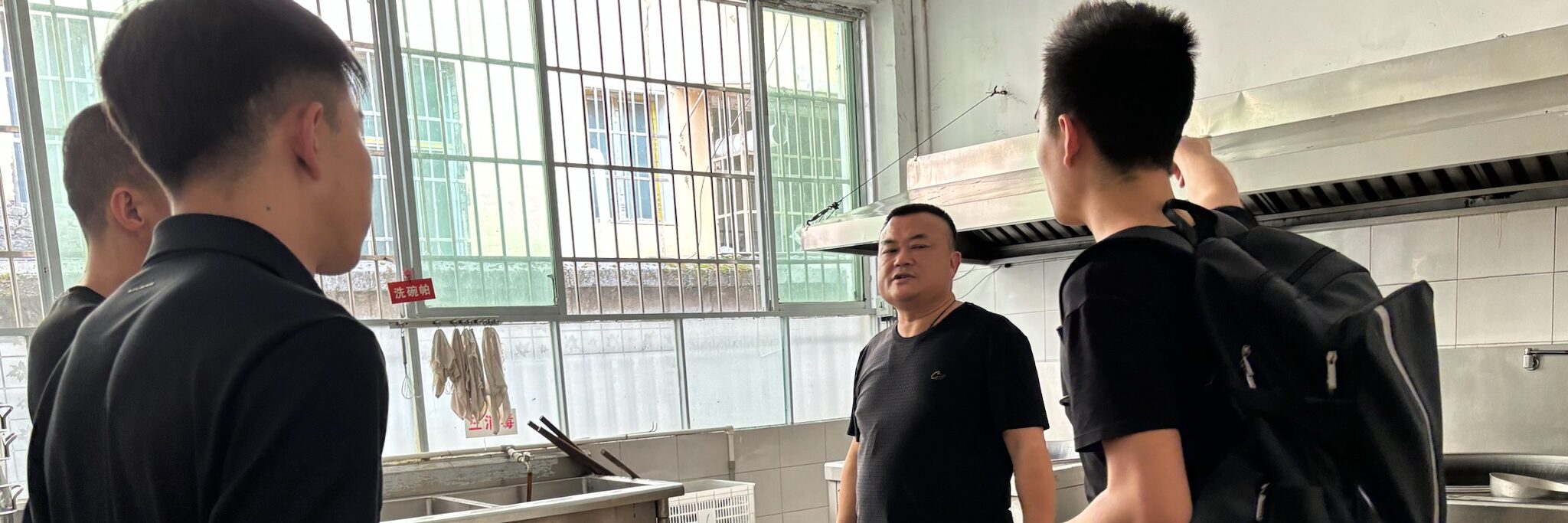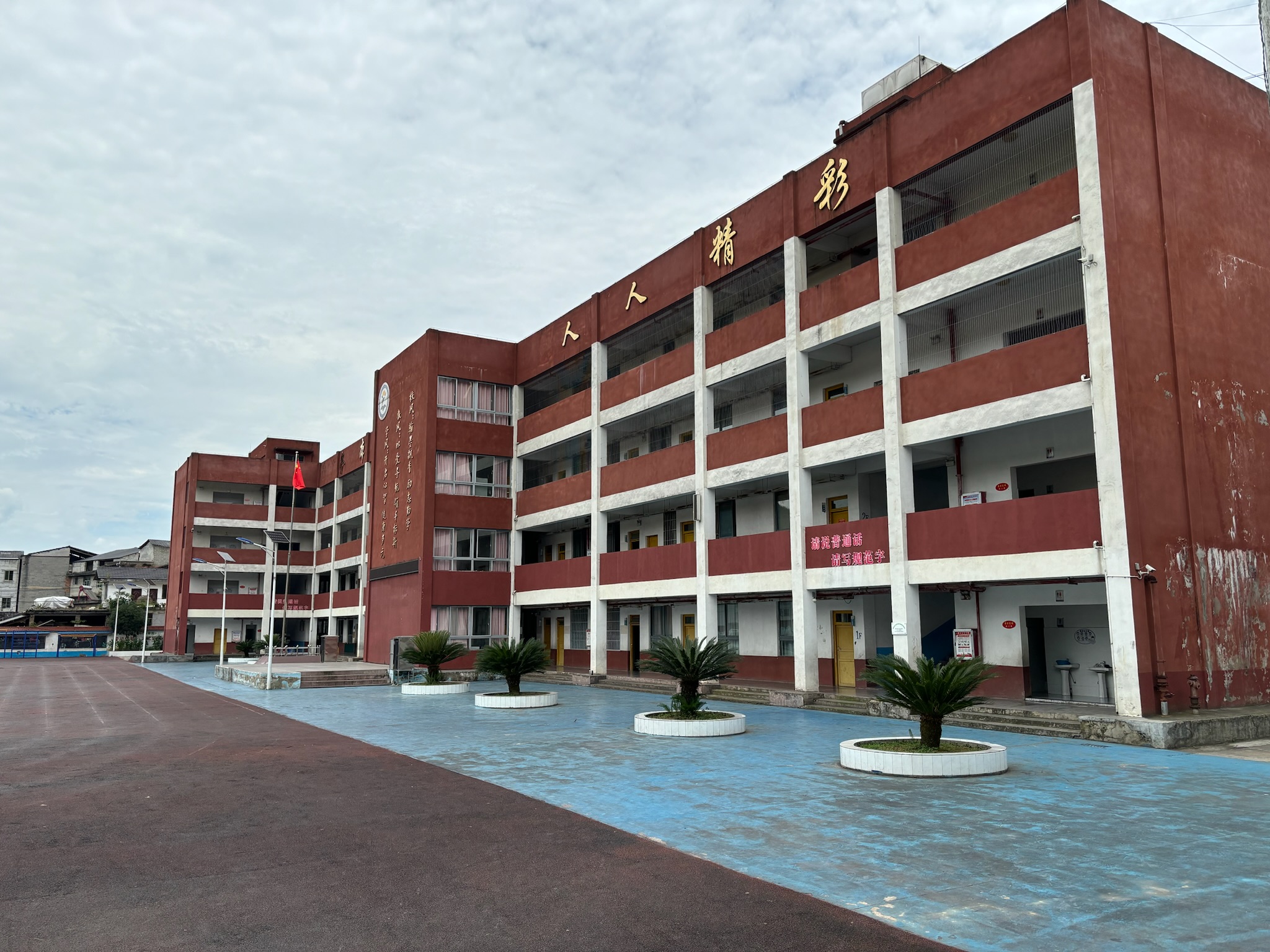Zheng’an County, Zunyi City, Guizhou Province, People’s Republic of China, China
In collaboration with

August 2024 – November 2025
We adopt a comprehensive approach: we improve facilities and implement behaviour change activities to ensure sustainable hygiene practices, emphasising inclusion and the specific needs of students and girls with disabilities during menstruation.
Objectives
- Improve the sanitation and handwashing facilities, as well as the personal hygiene habits of students.
- Protect the most vulnerable children from common infectious diseases.
- Ensure accessibility for people with disabilities.
- Establish a community governance system for the efficient and sustainable use and maintenance of the facilities.
Beneficiaries
1522 direct
1373 under 15 years old and 742 women.
The teaching staff and students from four educational institutions will have access to improved water, sanitation, and hygiene facilities, including 130 students with disabilities.
4174 indirect
The parents and siblings of the students, as well as the families of the staff who live on campus.

On the Ground
Limited economic resources and severely deteriorated sanitation and hygiene facilities in schools cause a high rate of child illness and school dropout.
Zheng’an County is located in Guizhou Province, one of the poorest in the country, and is characterised by mountainous terrain dotted with small villages. The local economy heavily relies on migrant labour, and many parents are forced to leave their homes to find work elsewhere; their children remain in rural areas and attend schools with outdated sanitary facilities, which significantly affects students’ health. Rural residents’ annual per capita disposable income is approximately $2,000 USD, highlighting the economic limitations that constrain local investment in infrastructure improvements.
The schools targeted by the project face several critical issues: lack of proper handwashing stations, inefficient drainage systems, and absence of showers.
Existing toilets are often unsuitable for children with disabilities, and the overall state of the sanitation facilities contributes to a high risk of waterborne diseases, such as diarrhoea and pneumonia. Furthermore, the lack of privacy in the showers especially affects girls during menstruation, leading to health risks and absenteeism.

In Detail
This project adopts a comprehensive approach, as it improves facilities and implements Behavior Change Communication (BCC) activities to ensure sustainable hygiene practices. Additionally, the project emphasises inclusion, addressing the specific needs of students and girls with disabilities during menstruation. This holistic approach ensures long-term benefits and fosters a supportive educational environment.
It is a targeted intervention to improve the sanitary and educational environment for children in Zunyi City. It focuses on four critical schools in the remote city of Xinzhou and Zheng’an County: Xinzhou Central Primary School, Xinzhou Second Kindergarten, Zheng’an Fourth Middle School, and Zheng’an Special Education School.
The project’s interventions include:
– Infrastructure improvements: new handwashing stations, enclosed shower compartments, deeper drainage ditches, and toilets adapted for people with disabilities, especially children who require wheelchairs.
– Behavior Change Communication (BCC): interactive activities with students on the importance of hygiene practices and effective use of facilities.
– Increasing ownership: the school will participate in the design and construction process with a fully participatory approach to ensure that those most affected by the project have a say in its implementation.
– Forming a Water Management Committee with school staff to oversee the maintenance and efficient use of the facilities. The Committee will be equipped and trained in water conservation and hygiene education to ensure the longevity of the facilities.
– Monitoring and reporting to ensure compliance with project guidelines and financial protocols with transparency and accountability.
We are implementing this project directly with World Vision through their Guizhou Representative Office. There will be no involvement of external local organisations in the implementation. However, the schools and the Local Education Office will support coordination among the different parties. The schools will participate in the formulation, implementation, and evaluation process, including design, project tendering, monitoring, and acceptance. They will also support the coordination and organisation of students in joining the behaviour change communication activities.
Prospects for sustainability
Sustainability is based on the effectiveness of Behavior Change Communication, which is the best guarantee for the effective use and maintenance of the facilities. Also, by increasing ownership, the community directly participates in the construction and planning of the use and maintenance, primarily through the Water Management Committee.
The socioeconomic development of the area is the best guarantee of sustainability. By improving the health of the student population and promoting gender equality, absenteeism is minimised, which benefits academic performance and future economic opportunities for young people while reducing medical costs for families. The project also supports local economic development by providing potential jobs related to constructing and maintaining the new facilities.

